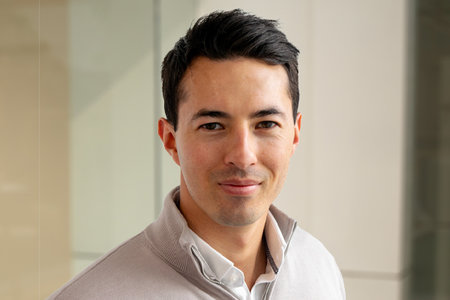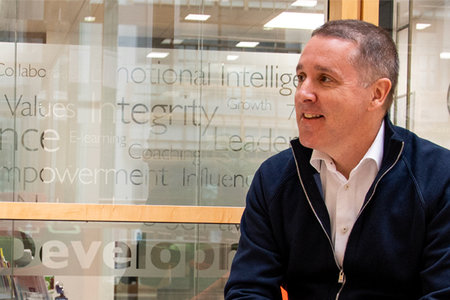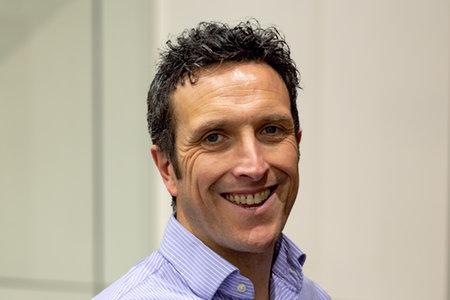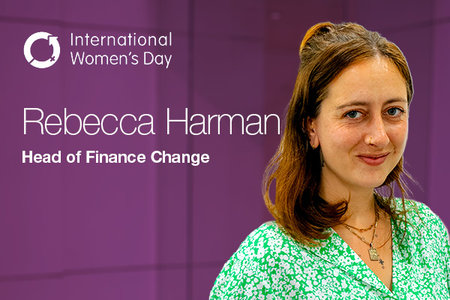Passing on experience, wisdom and advice through mentoring can make a huge professional and personal difference – to everyone involved. Two CBPF employees take us up close and personal with partnering up…
The mentee: Shaylee Pagliaro, Sales Manager for personal lines
I’ve found being a mentee hugely valuable for developing not just my skillset but the best way to make the most of it. My manager put me forward for mentoring through Close Brothers’ partnership with the 30% Club, a global, cross-business organisation that mentors women to improve gender balance in senior roles. That means my mentor isn’t a colleague, but a female solicitor in London.
Louise has been a fantastic help to me – we speak once a month and she goes through what challenges I’ve faced in my job and how I’ve overcome them. She gives me great advice on everything from how to better manage my work diary to working ‘smarter’ and more efficiently. She’s a great listener and, because she’s not in our sector, it’s great to get a different perspective on my day-to-day issues. Being that little bit removed, she’s opened my eyes to my skill sets – and to see how best I can use them and which ones to work on.
My mentor has also helped me to look at the bigger picture, including my work-life balance and how I can achieve and contribute in other ways. I told her that I wanted to volunteer, and now spend some of my free time working for the Trussell Trust, a food poverty charity. I’m really enjoying being able to do that – but might never have done it if I hadn’t spoken about it with my mentor.
Besides working with Louise, the 30% Club holds regular networking sessions with other mentors and mentees. A recent online session was about moving ahead in business, and it was really inspiring to hear stories from business people around the world. Whatever you’re doing, the fundamentals of getting ahead are the same everywhere – having ambition, working hard, knowing your skillsets, understanding what’s working and what isn’t.
Mentoring encourages and motivates you to really think about practical ways you can help yourself. It’s given me so much confidence to believe I can achieve things, as well as the assurance and skills to continue to better myself. It’s also made me want to mentor someone myself and pass my knowledge on.
The mentor: Rebecca Paines, Regional Sales Manager, Central Sales
I was approached to mentor a younger member of staff through the Ignite scheme, which encourages junior team members to learn further skills and do a bit of self-analysis. I was delighted to be asked to help – and soon realised it wasn’t just helping them, but me as well.
My mentee had been in the company for about nine months, had started on calls and was just moving into the complaints team. We had monthly catch-ups and I assigned him regular mini projects and little bits of homework alongside his daily tasks, which gave him experience and helped him gain promotion.
I really enjoyed it. I knew him already as, when he’d first joined, I’d been his manager. But we had parted ways so, when I became his mentor, it was a different kind of relationship. I now needed to be a safe place for him, to help and guide him – to let him know if he had a problem he could come to me.
I really saw him blossom during our mentor-mentee relationship, both professionally and personally. He was quite shy – I’m the opposite – so one of the challenges he had was how to approach people at a senior level and not be intimidated. I encouraged him to remember that everyone is human, that we all do the same human things. That helped him handle being respectful but still having the confidence to speak up.
It’s important as a mentor not to just go in and say, “You’re doing it wrong!” But I would get him to question why he’d done things in a certain way and consider how he might do them better. Sometimes, there was a little push-back – but then he realised I wasn’t criticising him, rather I was asking him to question himself, which is what we should all do.
I also encouraged him to question the wider status quo. One of our company values is, “Do the right thing,” which encourages us to examine whether we can do things better – a healthy way to work. On one occasion, he came to me concerned that a colleague wasn’t “doing the right thing”, but he didn’t know how to tackle it. I simply asked him how he would like to be approached if it was him. I was aware I was pushing my mentee out of his comfort zone, but it gave him the courage and confidence to have conversations he might otherwise not have had.
Our mentoring relationship lasted for a year, so I no longer have that role. But it’s given us a really good working relationship. And it’s great to see him now, having gained so much confidence – how he talks to people, speaks up in team meetings. Even the way he structures his emails is completely different today.
One unexpected benefit of the process was how much it made me think about how to improve my own work. I was giving him all this advice, all these top tips and then would think, “Am I doing these things myself in the right way?” So it was great for my own self-evaluation. I was mentoring someone else, but ended up also mentoring myself.






